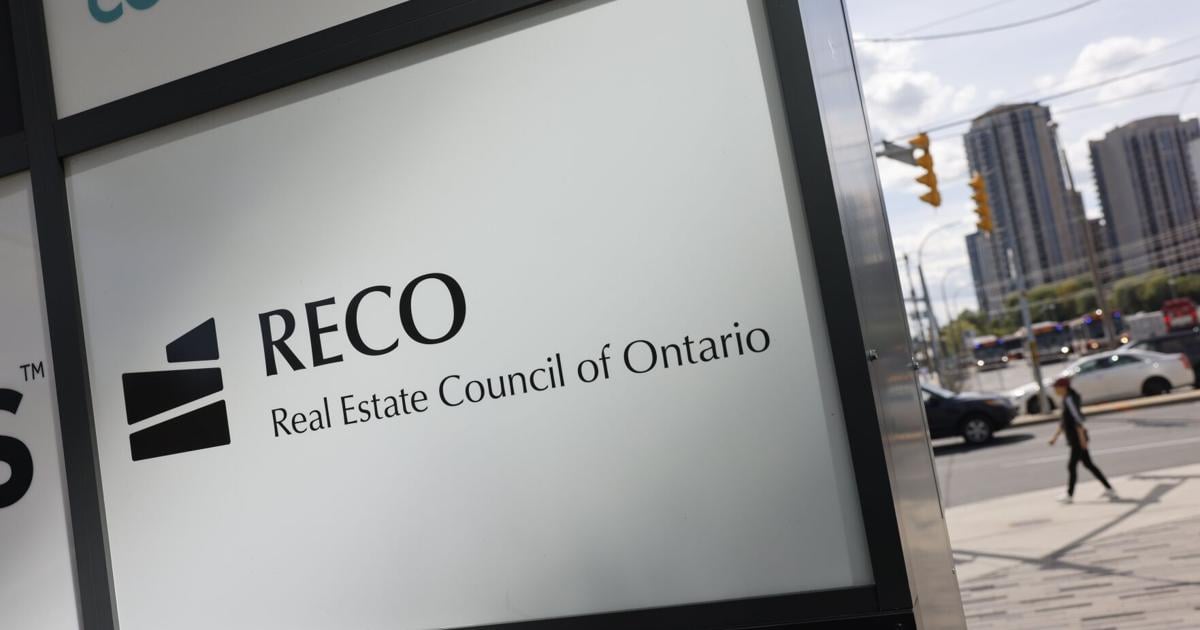The Ontario government has received the results of an audit into how Ontario’s real estate regulator handled the iPro scandal — but it’s not making the findings public yet.
The report, produced by law firm Dentons Canada, looks at how the Real Estate Council of Ontario (RECO) handled the iPro Realty scandal, which saw millions in agent commissions and consumer deposits “illegally disbursed” from the brokerage’s trust accounts.
It also looks at what RECO can do to improve “oversight and governance” moving forward, following an outcry from agents, homebuyers and brokerages across Ontario after a deal was struck with iPro co-founders Fedele Colucci and Rui Alves that promised RECO would not charge them or levy fines.
Provincial Minister Stephen Crawford previously stated in a letter that he would not hesitate to assume control of the regulator if he is “not satisfied with the conduct or the findings” of the sweeping audit.
The Ministry of Public and Business Service Delivery and Procurement would not confirm when the report findings will be made public, but the real estate industry and consumers deserve to know soon, experts told the Star.
“As directed by the Minister on August 29, 2025, after the Ministry and the Minister have had the opportunity to review the report, the findings of the audit will be communicated to the public,” RECO said in a press release on Thursday night, adding that its board of directors has also received the report.
The board received an interim report from Dentons on Oct. 1, which the regulator said it reviewed in detail.
RECO has faced intense public backlash for its actions in the iPro case, which allowed the brokerage to continue operating and conducting more than $700 million in transactions for three months after it discovered the $10.5 million financial shortfall in May, which RECO said is the largest trust account shortfall it has investigated.
The regulator told the Star its former registrar, Joseph Richer, had struck a deal with iPro’s co-founders Colucci and Alves, who served on RECO’s board of directors from 2019 to 2023. The deal allowed iPro’s founders to “voluntarily terminate” their realty registrations and escape charges and fines. Richer left his post at the regulator in August.
Industry veterans support the sharing of the report findings with the public, but are skeptical it will instigate significant change at the regulator.
“It’s all smoke and mirrors, even if they hold RECO accountable we’re not likely going to see any major oversight changes that is going to … enact any change,” said Brandon Reay, an Ottawa broker who writes about the industry’s governance for trade publications.
“I don’t care if we lose self-regulation,” he said, referring to model under which RECO operates. “I think it’s proven that it doesn’t really work,” he said.
Reay pointed to B.C. as an example of a province’s real estate regulator successfully changing from being self-governed by industry to being government-controlled after a scathing report found the regulator was not fulfilling its mandate to protect consumers.
“Removing industry capture is extremely important,” he said. “The fact that the regulator can bump elbows with people committing these acts, that is a huge problem.”
The Dentons report will allow the ministry to claim it conducted a “full and final investigation with a reputable firm,” said Mark Morris, a real-estate lawyer and former policy adviser to Ontario’s attorney general.
“With all the public attention, Dentons will do a thorough report that I suspect will be somewhat scathing,” he added.
But Morris doubts the report will reveal “much that we don’t already know,” which is that the regulator made a “bad deal” with iPro and “sat on their hands for too long.”
Both Morris and Reay said that the ministry may appoint an ombudsman, but even if it did, they wouldn’t expect much of an impact.
“If the Ministry appoints an ombudsman, it wouldn’t change the situation,” said Reay.
On Sept. 11, RECO sought its own emergency injunction from Ontario’s Superior Court to freeze the assets of iPro and its principals, alleging the brokerage’s co-founders and seven of their companies orchestrated a “trust scheme,” which involved “the systemic diversion, removal and misuse” of trust money.
The proceeding requested a court order to allow RECO to trace the flow of trust funds that were “diverted” and return them to the trust accounts. Around 10 days later, a Superior Court judge granted the order.
Dentons represents RECO in the ongoing court case against iPro.



